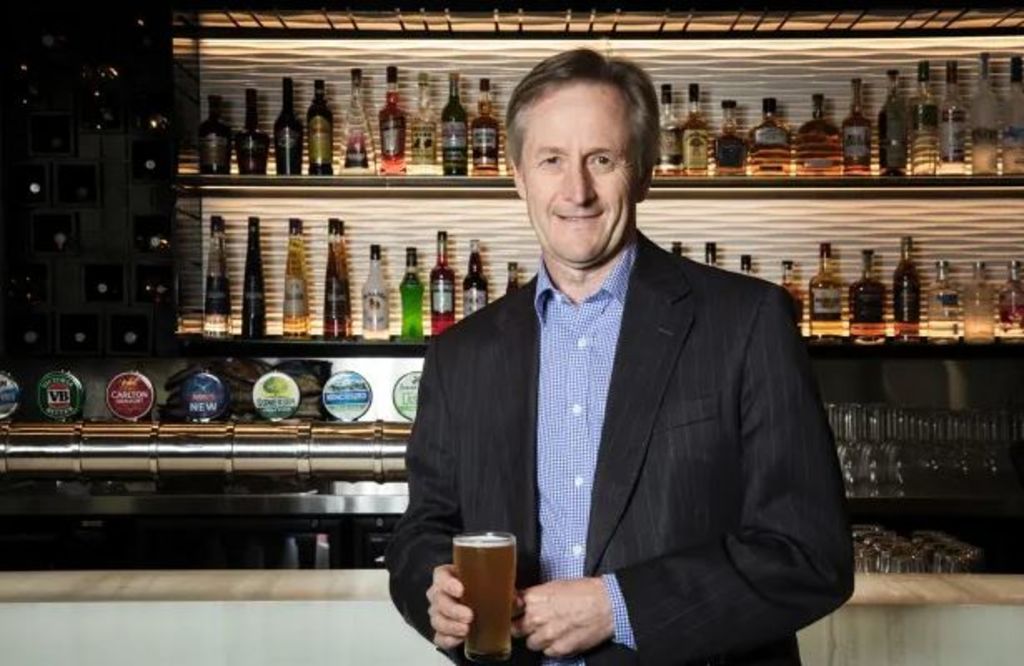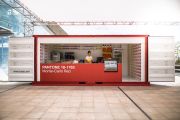
Pub owners still smiling despite pokies regulation and falling revenues
Larry Schlesinger and Luke Housego
The booming pub sector will enter a downturn in 2019 with national revenue growth set to turn negative as alcohol consumption slows and more red tape and costs hit the gaming sector, research house IbisWorld has warned.
In its latest outlook for the pubs, bars and nightclubs sector, IbisWorld forecast industry revenue to fall 0.5 per cent this financial year to $17.2 billion and to grow at well below inflation – just 0.6 per cent a year – over the next five years.
“Small bars and pubs with premium food and drink offerings and niche services are projected to perform well, while pubs that rely on pokies revenue will likely come under pressure from tightening government regulations to combat problem gambling,” said IbisWorld.
Debt levels a concern
The decline in revenue and profitability comes at the same time as pub real estate values have soared after the post-GFC debt binge-fuelled collapse, when the banks called in the loans of highly geared groups like National Leisure and Gaming and the Hedley Group.
With the gap between property values and performance set to widen further this year, it could spell trouble again for heavily indebted landlords and publicans who bought near the top of the cycle, especially as funding costs start to rise.
George Ajaka, head of investments at White & Partners, the private equity vehicle of the White real estate family, said “debt levels” would be the biggest issue for owners and investors in 2019.
“If pub owners can manage this and even go as far as reducing their debt, they will be better placed to handle a shock to the sector, which is beyond our control,” said Mr Ajaka who manages a portfolio that includes the Allawah Hotel in Sydney’s south and the Acacia Ridge Hotel in Brisbane.
“What we can control is debt, so reducing debt is a smart thing right now,” he said, whilst affirming that the group had a good year with all its pubs “trading well across the board”.
Twenty-year pub turnaround veteran Peter Braithwaite rode the recent boom in pub values in NSW, but recently sold up to pursue better value opportunities in Queensland.
Mr Braithwaite bought the Red Lion Hotel in the Brisbane suburb of Moorooka in late 2018 having sold a previous venue, the Commercial Hotel in Lake Macquarie in 2017 at a handsome profit.
He said he saw “comparative value in pricing” and a more stable regulatory environment in Queensland, where pubs have yet to see a huge surge in values at the same time as operating conditions weaken and pubs owners face greater pokies regulation.
“Potential regulatory change represents a material risk, particularly for operators with a higher reliance on gaming revenues,” Mr Braithwaite said.
Redcape’s struggles
While the correction that some thought might happen to pub values in 2018 failed to materialise, the lacklustre float of the Moelis-managed Redcape Group, owner of 32 venues in NSW and Queensland, and a warning about higher funding costs and rising land taxes in Queensland by listed pub landlord Hotel Property Investments (HPI) in November has put the sector on notice.
HPI chief financial officer Blair Strik said he expected funding costs would continue to increase for pubs and the availability of credit would be “tighter”.
Some of the recent deals struck for pubs in the private market “did not make much sense”, Mr Strik said. “Some of these yields can’t be much higher than their funding costs,” he said.
In a sign of potential trouble brewing for the sector, shares in owner and operator Redcape fell 8 per cent from their IPO price of $1.13 on the first day on November 30 and have yet to recover.
Redcape is one of the most heavily exposed pub groups to the pokies sector with 63 per cent of its revenue coming from gaming – compared with an industry average of 21 per cent. Poker machines, KENO and TAB kiosks contribute an even higher proportion of profit.
Despite its poor ASX start, Redcape chief executive Dan Brady said the company was “happy with the listing” when compared to the wider market and when looking at other IPOs that were not successful.
“While the current market conditions are challenging, it is also cyclical, and the current market presents a great buying opportunity,” he said.
Mr Brady said Redcape was undervalued to NAV (net asset value) but the business fundamentals remained strong and the sector attractive for investors looking to get into the space.
Asked if there was a risk of a crash in pub values in 2019, Mr Brady said historically regulatory changes had been the catalyst in driving down prices rather than economic cycles.
“However the environment is stable and collaborative at present with some strong positive initiatives coming through that I believe will enhance the industry and create positive social change,” he said.
He added that while equity markets are weak, “debt markets are good and currently debt financing globally is in abundance”.
Veteran pub valuer Robert Hunter of Queensland-based Power Jeffrey & Co, was bullish about 2019, but with some caveats.
“We’re pretty upbeat. We’ve seen good trading throughout [Queensland] last year, we don’t see that changing this year,” he said.
Mr Hunter said pubs sold with a blue-chip operator – Woolworths-controlled ALH Group or Cole’s Liquorland – at yields below 6 per cent during 2018 were a reflection of confidence in the market.
Ongoing risks
But he noted two ongoing risks faced by businesses in the industry: interest rates and regulatory change.
“The interest rate environment is favourable. We don’t want to see any upward movement, which may trigger consumers to tighten spending,” he said.
Mr Hunter said that while some pub operators were focused on gaming, stronger businesses had balanced revenue sources.
“If there was regulatory change that affected your business, like gaming, your other revenue streams will offset that.”
Fears of a downturn are not uppermost on the mind of Andrew Wilkinson, who last financial year guided the country’s biggest listed pub landlord, ALE Property Group to top position on on the BDO A-REITs survey.
ALE delivered a 24.5 per cent total return to shareholder with the value of its 86 pubs, all leased to Woolworths-backed Australian Leisure and Hospitality rising 5 per cent to $1.14 billion.
The A-REIT also saw weighted average yields on its portfolio fall below 5 per cent for the first time last year
Mr Wilkinson said the overall sector remained stable and ALE had maintained a “good quality position”.
“If rates remain stable and all other factors remain unchanged, I’d be surprised to see values move significantly, but only time will tell.
“High-quality properties always perform better if there is volatility.”
Pup brokers Andrew Jolliffe and Dan Dragicevich of HTL sold 20 NSW pubs worth $300 million in the second half of 2018 including the Bells Hotel to Rich Lister Arthur Laundy for $15 million and Paddington’s Four in Hand and Bellevue Hotels.
“We remain convinced that yields for AAA-grade commercial property indexed to a hospitality function will contract through and beyond 2019,” Mr Jolliffe said.
“Our view has been both consistent and accurate in this respect over the past 24 months, and we see no compelling reason to amend this view,” he added.
JLL’s John Musca who brokered Redcape’s $50 million off-market acquisition of the Australian Hotel and Brewery in Rouse Hill last year was also bullish about the prospects in 2019.
“Hotel trade has historically proven to be very resilient to economic uncertainty and values are a function of earnings and demand,” Mr Musca said
“There remains significant latent demand for hotels across cities nationally and, other than the cost of debt, there is little foreseeable reason that the weight of capital for the sector will dilute significantly.”
Despite choppy equity markets, changing consumer habits and the weak Redcape float, Queensland hospitality king Godfrey Mantle hopes to float his Mantle Group later this year.
The group, which which comprises 15 venues including the British-themed Pig ‘n’ Whistle pubs and recently renovated Jimmy’s on the Mall venue on Brisbane’s Queen Street Mall, has little exposure to the pokies sector and leases rather than owns its own real estate.
It’s focus is on quality food and beer, including a growing demand for craft beer.
Mantle Group chief executive Arj Rupesinghe said the group was “bullish” about the sector and had aggressive expansion plan, including opening two rooftop venues above Westfield Sydney in the CBD in early 2019.
“It’s not our intention to go down the pokies path. We’re focused on large format venues in prominent locations,” he said.











